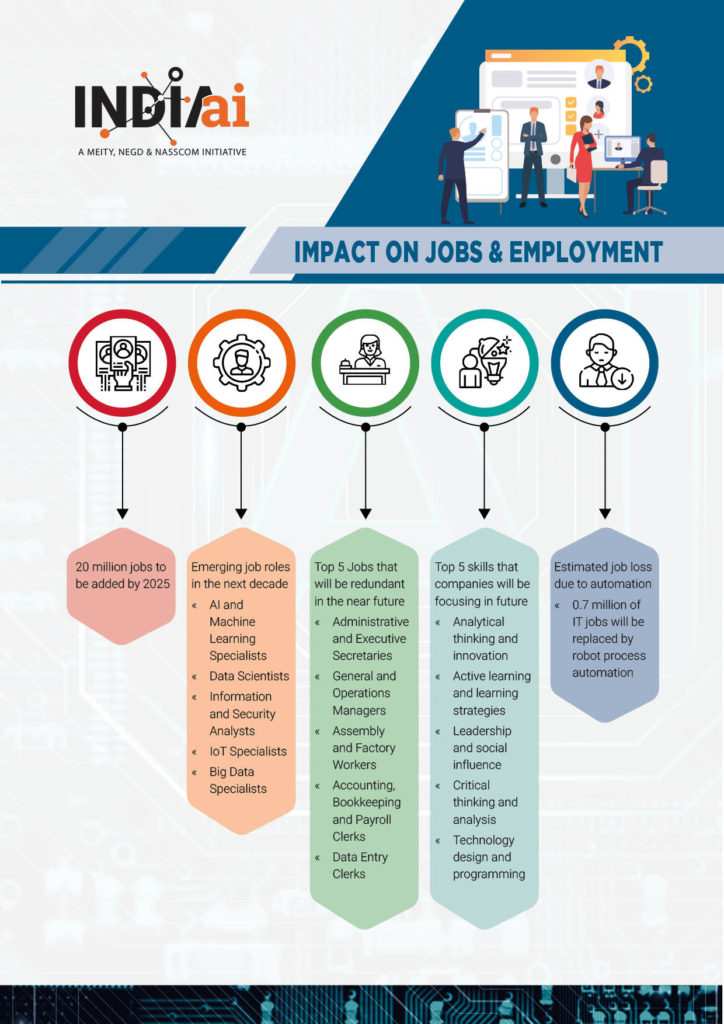Artificial intelligence is an incredible technology that has made it possible to think beyond the unthinkable. Honourable Prime Minister of India, Narendra Modi praising the technology during RAISE 2020, said, “Artificial intelligence is a tribute to human intellectual power. The power to think enabled humans to make tools and technologies. Today, these tools and technologies have also acquired the power to learn and think! In this, one key emerging technology is AI. The teamwork of AI with humans can do wonders for our planet.”
PM Modi has the vision to make India a global hub for AI. Many Indians across the globe are working on the technology and many more would do so in the times to come. PM added, “Our approach to this is powered by core principles of Teamwork, Trust, Collaboration, Responsibility and Inclusivity.”
One big question many of us have in mind is around what sort and what effect AI would have on jobs and employment. People are still hesitant around adopting AI with a fear of an all-new exquisite infrastructure, and people fear it to be eating up the jobs that we humans had been doing.
According to The India Express, around 20 million jobs are to be added by 2025 around artificial intelligence. These numbers are due to the promising response and latest innovations in technology in every imaginable field. From disease detection, mental health counselling, weather forecasting, crop predictions, studies, designing, urban city planning, sewage systems, traffic planning, disaster management, and fashion and space research. AI has touched it all.
According to World Economic Forum, AI will create specific job roles in the coming decades, such as AI and Machine Learning Specialists, Data Scientists, Information and Security Analysts, IoT Specialists, Big Data Specialists. There are various training programs and initiatives by governments to skill and prepare people for upcoming job roles around AI.
PM Modi at the RAISE Summit talked about creating a conducive learning environment with initiatives like The National Educational Technology Forum (NETF). This will create an e-Education unit to boost the digital infrastructure, digital content, and capacity. Virtual labs are being established to provide hands-on experience to learners. The government also launched the Atal Innovation Mission to promote a culture of innovation and entrepreneurship. With these steps, we can keep pace with emerging technologies for people’s benefit.

The top 5 skills that companies will be focusing on in the future are:
- Analytical thinking and innovation
- Active learning and learning strategies
- Leadership and social influence
- Critical thinking and analysis
- Technology design and programming
Few jobs that might become redundant in the coming times are Administrative and Executive Secretaries, General and Operations Managers, Assembly and Factory Workers, Accounting, Bookkeeping, and Payroll Clerks, and Data Entry Clerks.
According to NASSCOM, the domestic IT sector employs around 16 million, of which around 9 million are employed in low-skilled services and BPO roles.
According to a report by Bank of America, of these 9 million low-skilled jobs, 3 million will be lost by 2022 as a result of Robot Process Automation (RPA). Robot process automation (RPA) is the application of software to perform high-volume routine tasks.
These numbers make it evident that AI is going to create more job opportunities than it will erase. AI skilling and training is the need of the hour, as this technology will increase efficient working and use human expertise only for specialized tasks and for supervising the usage of AI-enabled technologies for the greater good. Human supervision is required to make this technology be used responsibly and ethically is our prime agenda today.
Source: indiaai.gov.in









